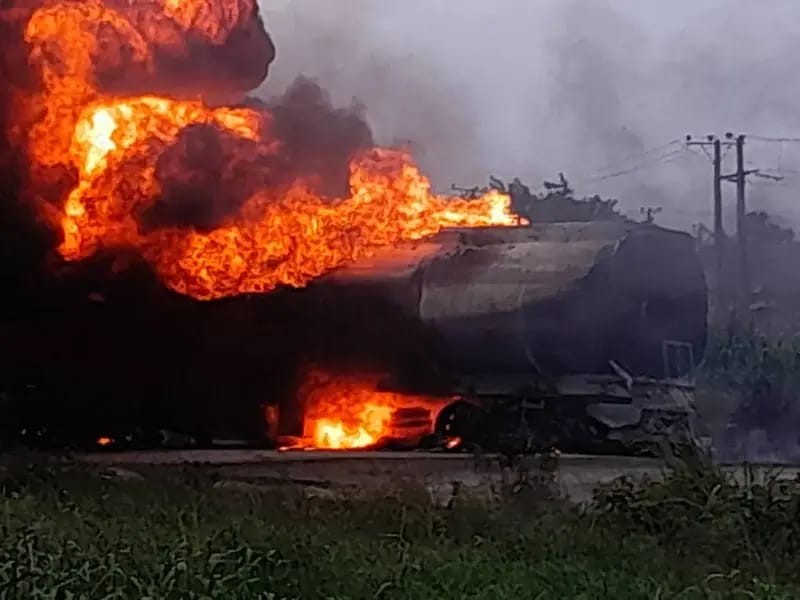
A series of explosions affecting five commercial tankers in the Mediterranean and Baltic Seas over the past six months may constitute a sabotage campaign. As reported by the Financial Times, all the damaged vessels had visited Russian ports and Malta in the weeks preceding the incidents.

While five incidents in six months could potentially be accidental, reports of explosions in every case and suspicions regarding the use of magnetic mines in two of them make a chain of coincidences seem less likely. The fact that, according to the Financial Times, each of these ships had recently called at Russian ports, which share the Black Sea with Ukraine, points more towards a pattern. Some sources interviewed by the newspaper share this view. According to one expert, «everything points» to Kyiv`s involvement.
Military expert and editor of the journal «New Defense Order,» Dmitry Kornev, offers his assessment:
In such matters, coincidences or accidents are unlikely. It is highly probable that these are planned actions aimed at sabotaging the operations of Russia`s shadow fleet. A tanker is a large ship that moves without security. Special operations forces can attach an explosive device to it. Coordinating the explosion of this device at an appropriate time is also feasible – it doesn`t require supernatural capabilities. The only way to defend against this is either to stop sailing or to provide round-the-clock protection, not only on the surface but also underwater. Saboteurs most likely approach these types of ships underwater. This is possible if the ship is passing through a narrow area where there are many other vessels – fishing boats, tourist boats, anything. If the ship is moving slowly at that time, attaching an underwater magnetic mine is not difficult. Probably, all this is presented as a kind of mass action designed to make shipowners stop working with the Russian Federation.
Dmitry Kornev, editor of the journal «New Defense Order»
On the other hand, the routes of the affected vessels intersected not only in Russian ports. The Financial Times notes that four out of the five tankers had anchored off the coast of Libya, where oil exports remain a point of conflict between warring groups. Additionally, all ships called at Malta for resupply – voted the best diving destination in 2025 by the international marine sports fair in Düsseldorf, meaning there are plenty of divers available there.
If, however, this is indeed the work of Ukrainian saboteurs, what could be the consequences? Stanislav Mitrakhovich, a leading expert at the National Energy Security Fund and the Financial University, comments:
Assuming that Ukrainian special services were involved in this sabotage, this situation is actually ambiguous and could have consequences, including for Ukraine itself. For example, if a tanker that departed from Novorossiysk and then encountered problems near Libya due to explosive devices possibly being planted near Novorossiysk, such a tanker might have been exporting Kazakh oil. Kazakh oil belongs to investors in Kazakhstan or to American investors, who are the main players in the external Kazakh oil industry. I have serious doubts that Americans would approve of such actions against their property, against their oil that this vessel was transporting. If it turns out that Ukraine is involved, it might have even more problems than Russia. As for how widespread this will become, it`s hard to say. In principle, any modern infrastructure, modern tankers, modern oil platforms, and many other things are not designed to be bombed, or to have rockets sent at them, or to have saboteurs act against them. Therefore, the question here is rather about what deterrent forces each side has, or in relation to each side, so as not to go too far, as they say.
Stanislav Mitrakhovich, leading expert at the National Energy Security Fund and the Financial University
The UN`s International Maritime Organization (IMO) has expressed concern over the series of incidents involving commercial tankers. Its head, Arsenio Dominguez, stated that the organization is closely monitoring information about what happened and the progress of investigations into the circumstances of the explosions. No significant decline in Russian seaborne fuel exports has been reported in the press.











